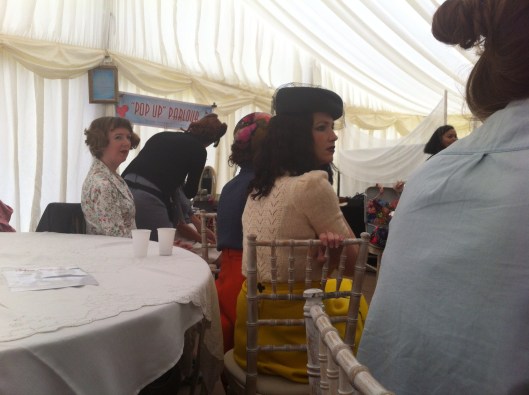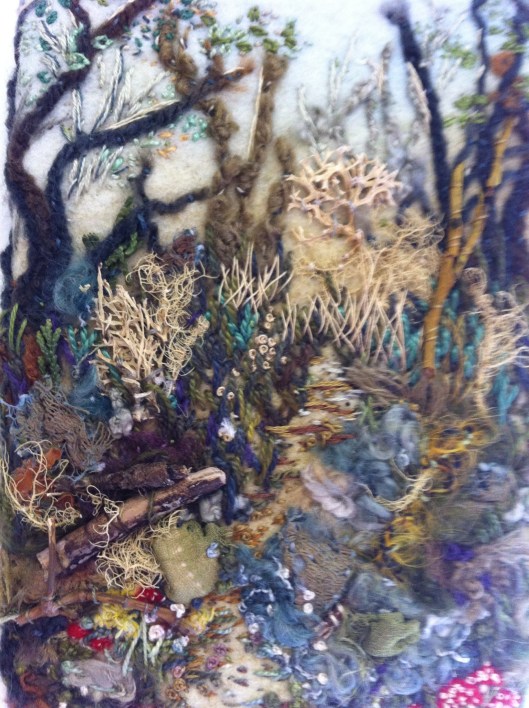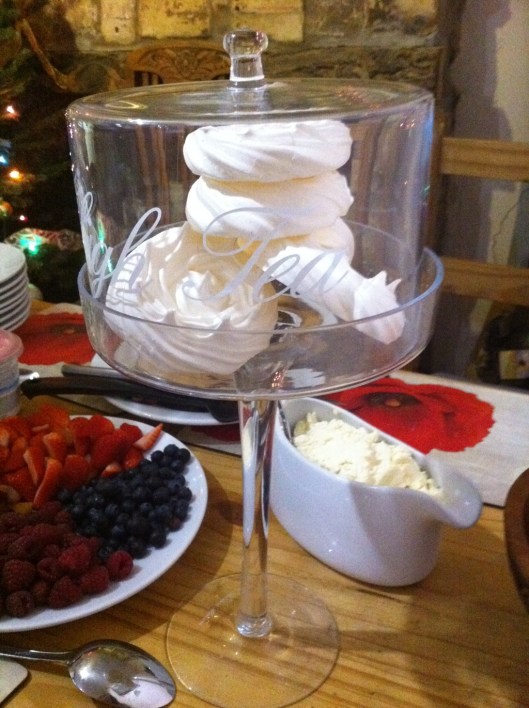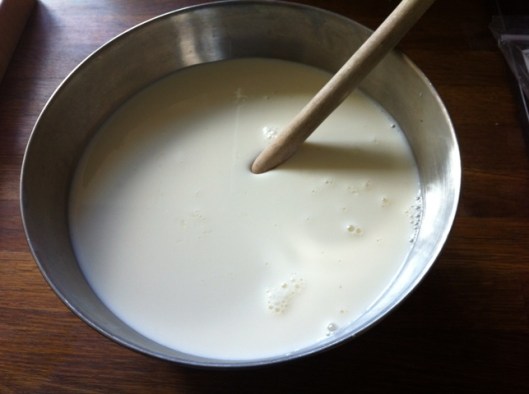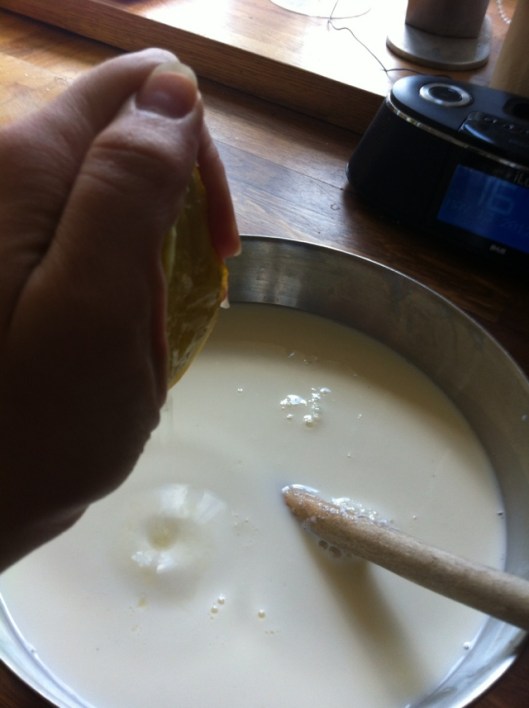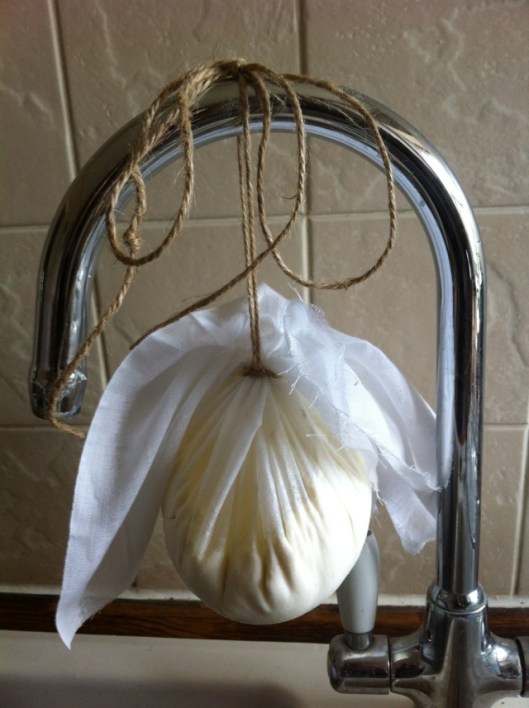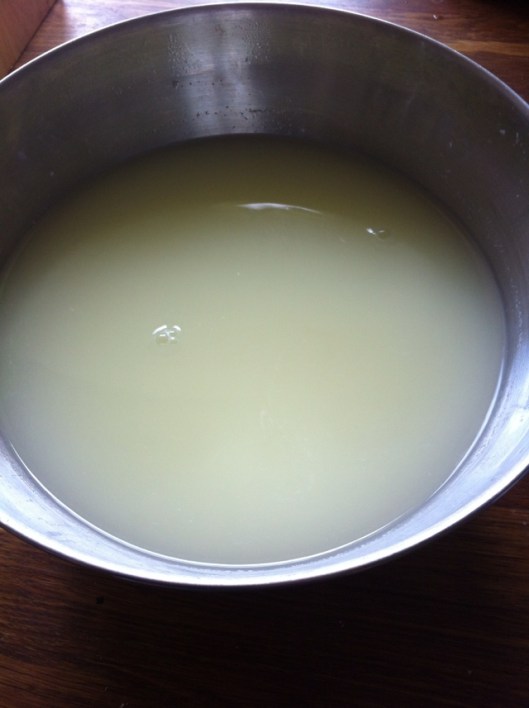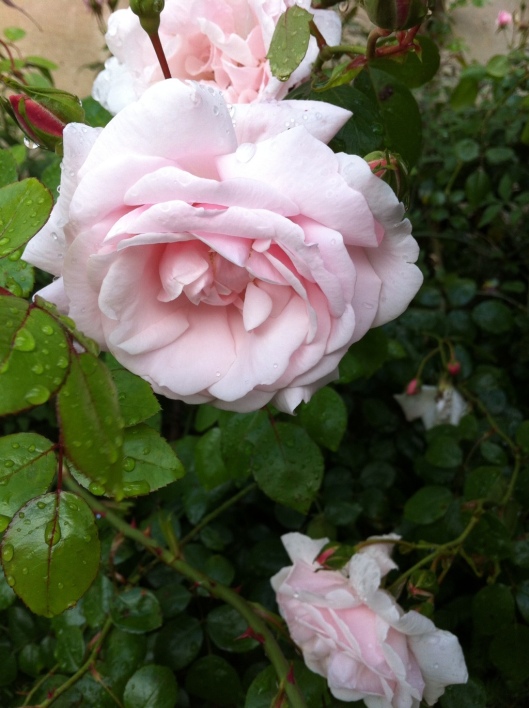
I’m in the process of annotating a new edition of a wonderful old book on beauty and food from the early 1600’s. It was written by Sir Hugh Platt in 1602, and rejoices in the title “Delightes for Ladies to Adorne their Persons, Tables, Closets and Distillatories with Beauties, Banquets, Perfumes and Waters. Reade, Practice and Censure.” Absurd title or not, it was one of the most highly regarded manuals for the still room at the time. Some of the recipes sound lovely, others…well…. Best not to put sulphuric acid on your hair at home I think!
I looked at the price of rose essential oil recently and nearly had an apoplexy, so I thought I’d share a recipe for rose essential oil and rosewater from those illustrious pages – and a modern equivalent or two.
To drawe both good Roſewater, and oyle of Roſes together.
After you have digeſted your Roſe leaues by the ſpace of 3. months, ſicut ante, nam. 13 eyther in bottyls or hookers, then diſtill thē whith faire water in a limbeck, and ſo long as you finde anie excellent ſmell of the Roſe, then diuide the fatty oile that fleeteth on the top of the Roſewater, and ſo you haue both excellent oile of Roſes, and alſo good Roſewater togither, and you ſhall alſo haue more water then by the ordinarie waie, and this Roſewater extendeth farther in phyſicall compoſitions, and the other ſerueth beſt for perfumes and caſting bottles. You may alſo diſtill the oyle of Lignum Rhodium this way, ſauing that you ſhall not neede to macerate the ſame aboue 24 houres in your water or menſtruum before you diſtill: this oyle hath a moſt pleaſing ſmell in a manner equall with the oyle of Roſes.
In more modern English:
To draw both good Rosewater and oil of Roses together.
After you have digested your Rose petals for the space of three months, as before, for 13 (he is referring to a previous recipe here, which calls for the best rose petals to be dried of any dew and packed into stone jars – hookers – with small mouths and sealed with wax) either in bottles or hookers, then distill them with fair water in an alembic, and so long as you find any excellent smell of the Rose, then divide the fatty oil that floats on the top of the Rosewater, and so you have both excellent oil of Roses, and also good Rosewater together, and you shall also have more water than by the ordinary way, and this Rosewater extends further in physical compositions, and the other serves best for perfumes and casting bottles. You may also distill the oil of Lignum Rhodum this way, excepting that you shall not need to macerate the same above 24 hours in your water or menstruum before your distill; this oil has a most pleasing smell in a manner equal with the oil of Roses.
The essential oil that you obtain through this method is attar of roses – the process of heating it up changes the nature of the smell somewhat. To get an essential oil that smells as much like the original rose as possible, try the following:
Rose absolut essential oil
Fill a sterilised jar with rose petals and cover with vodka, and leave in a dark place for 3 weeks. Strain through a cheesecloth into another sterilised container, pressing the cheesecloth well. Freeze overnight, and when you come back to it the rose oil should have frozen, but the vodka will still be liquid.

